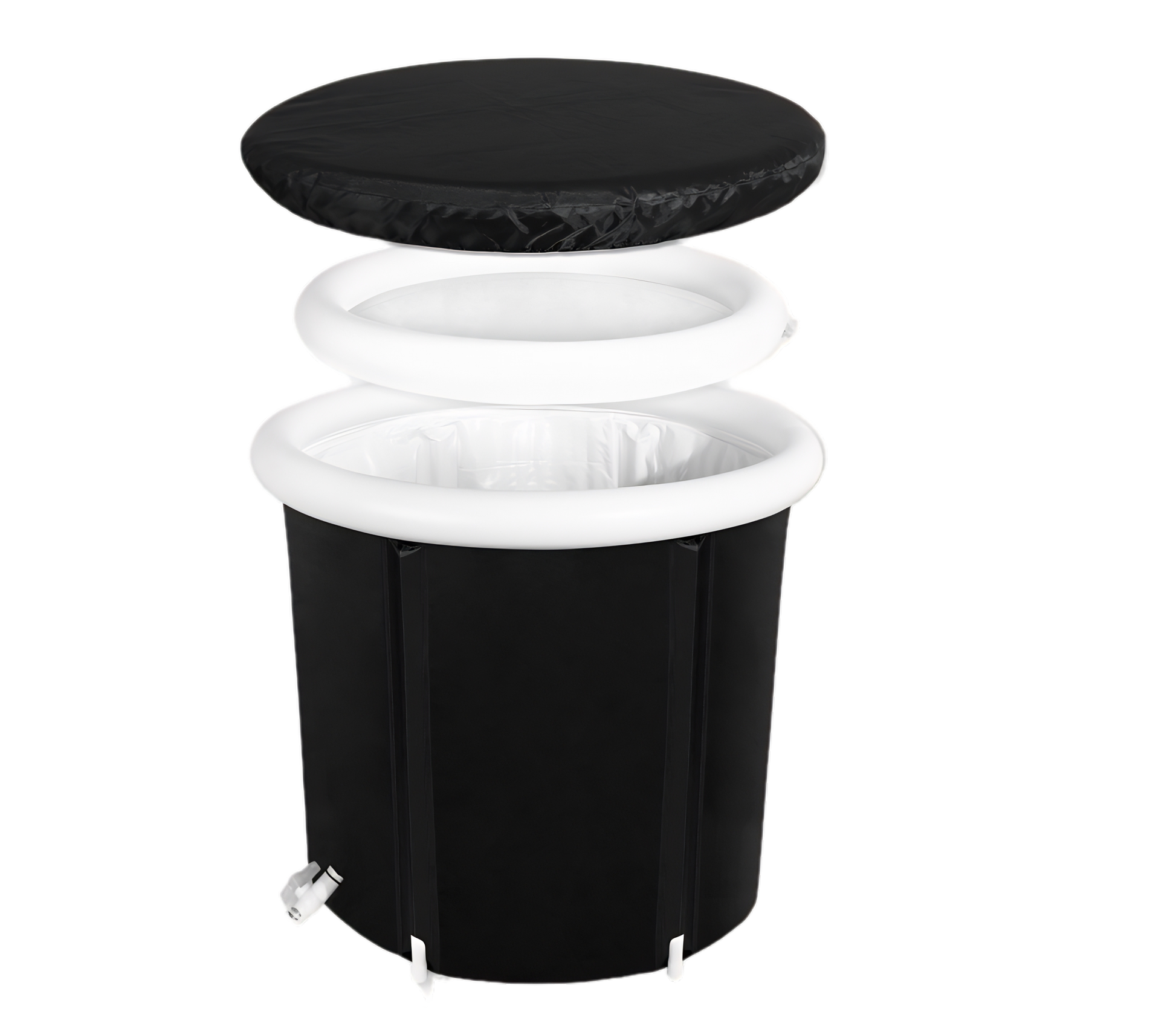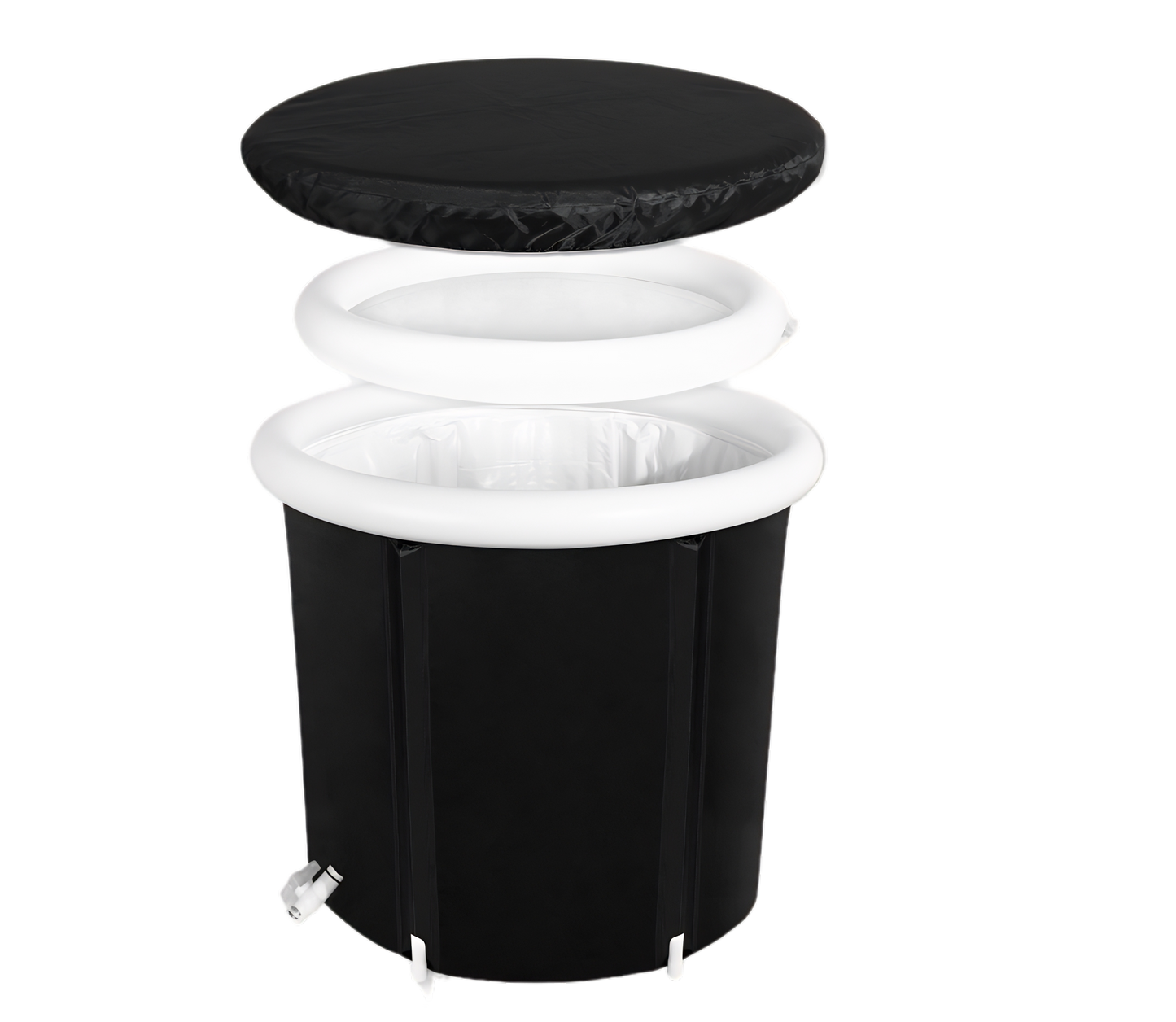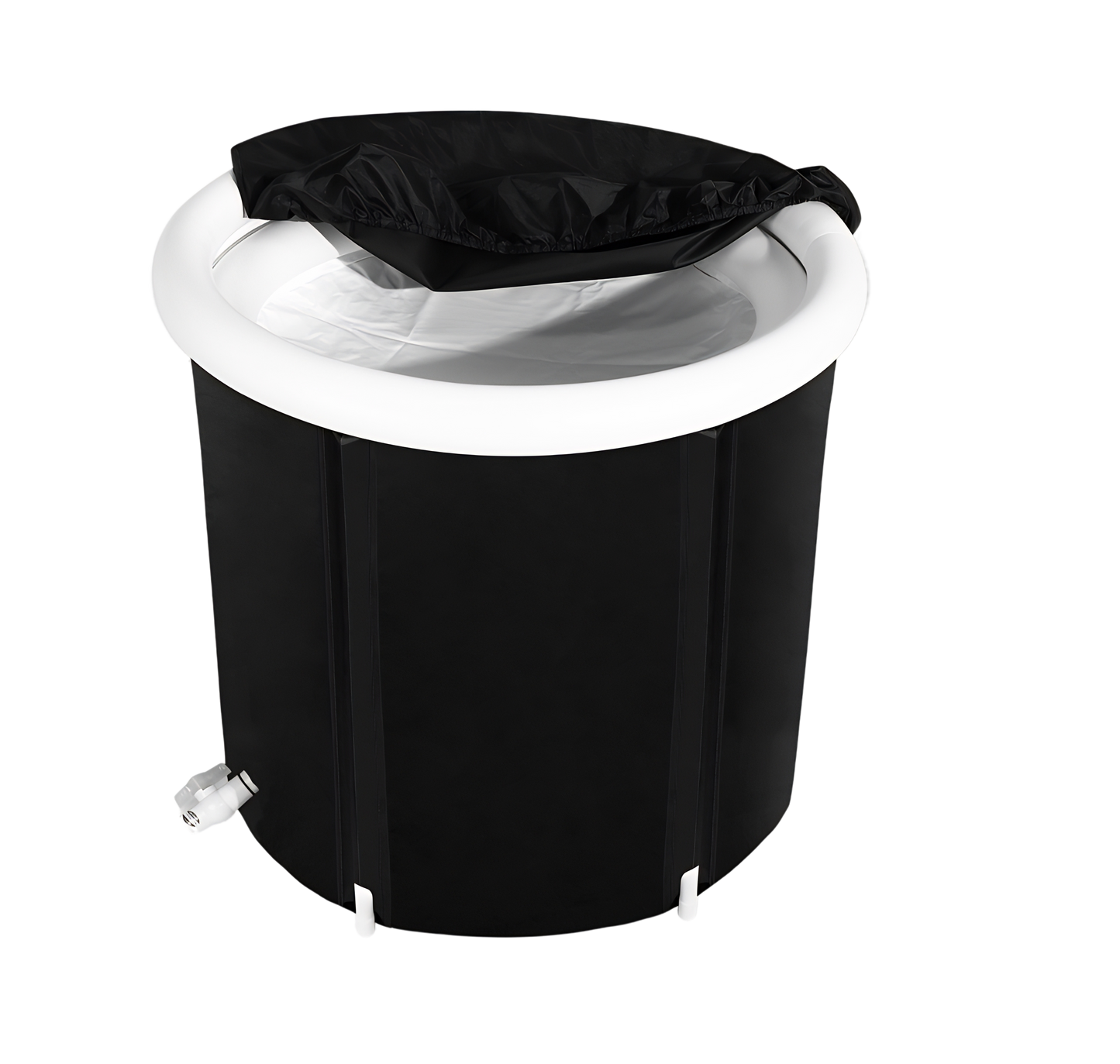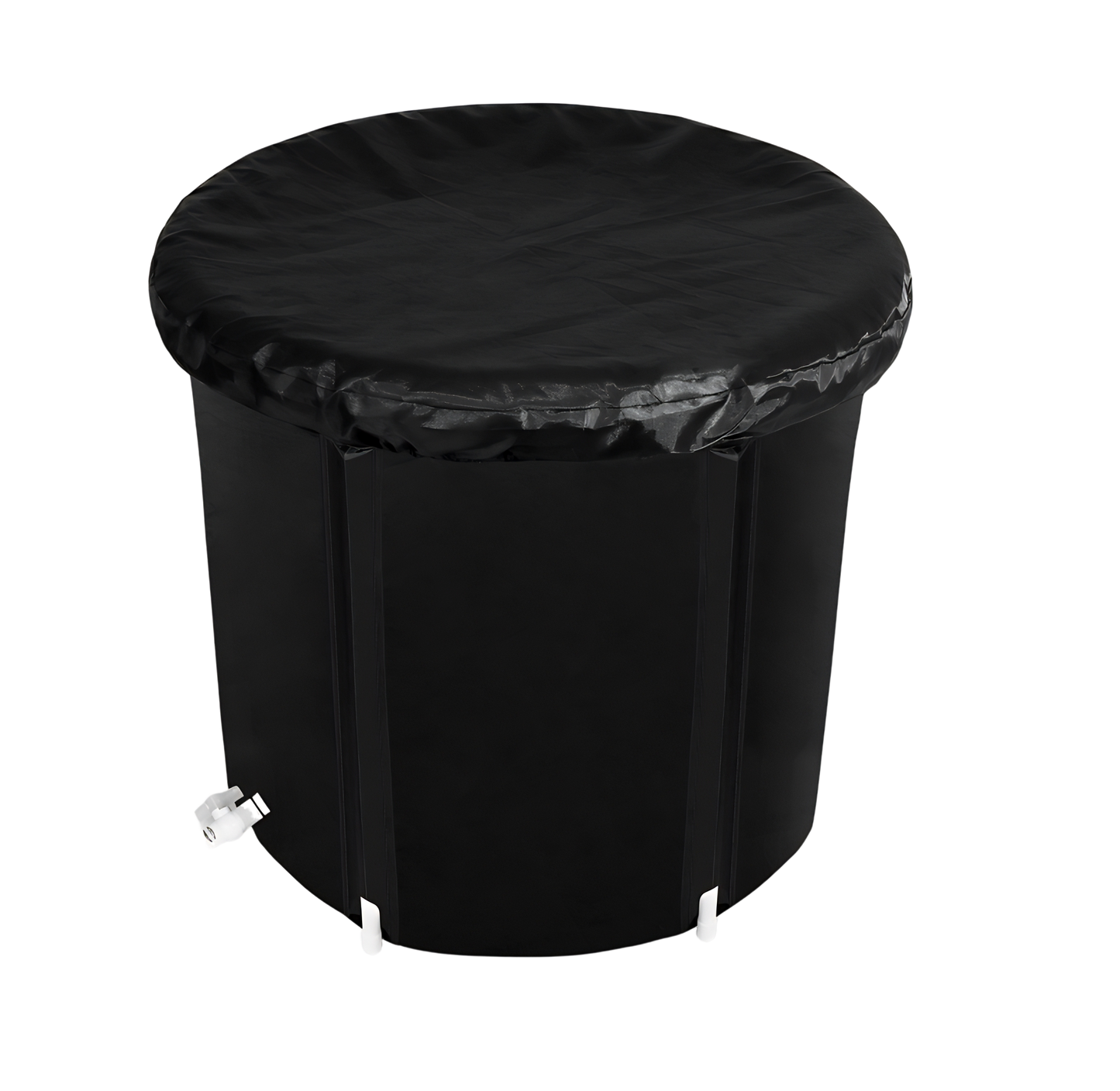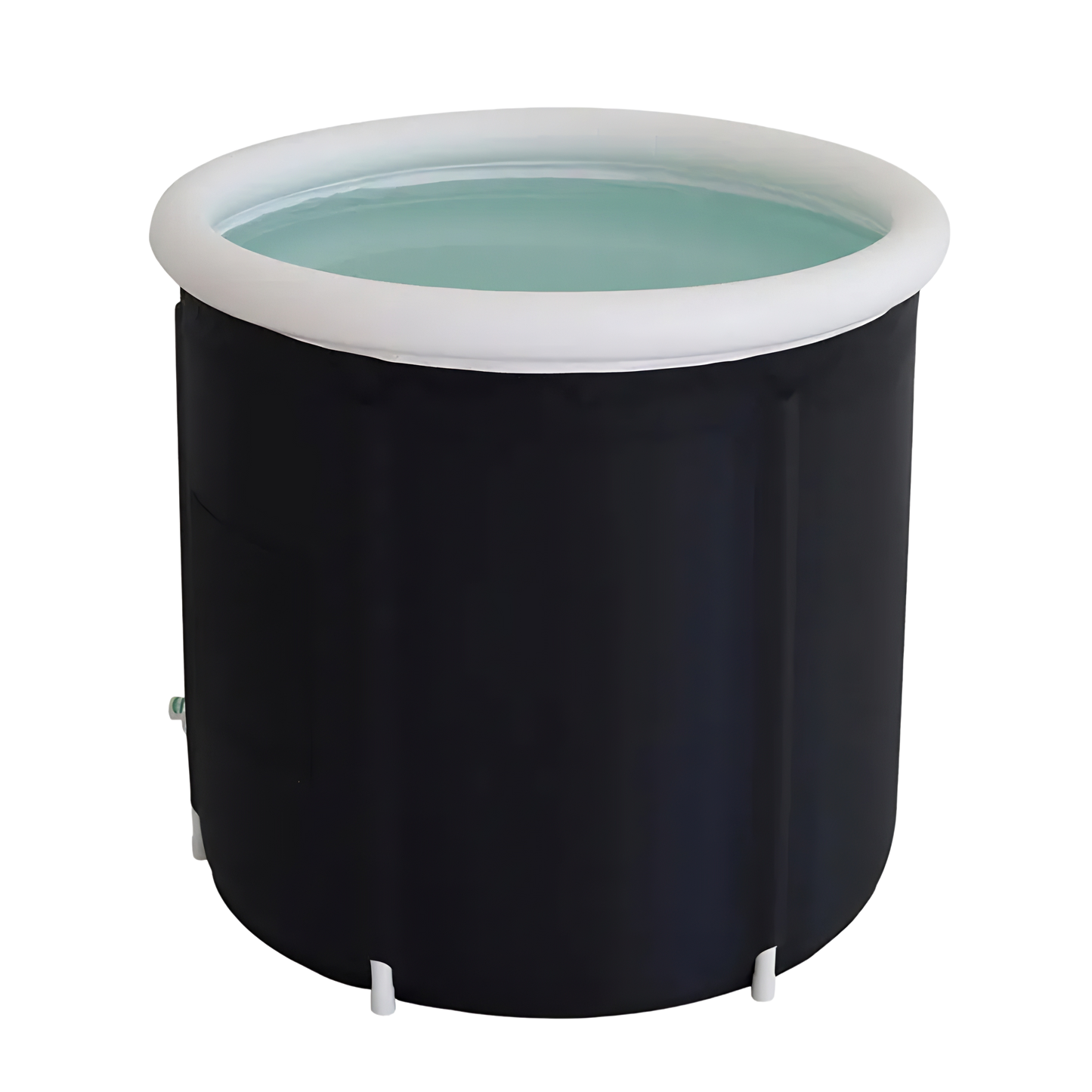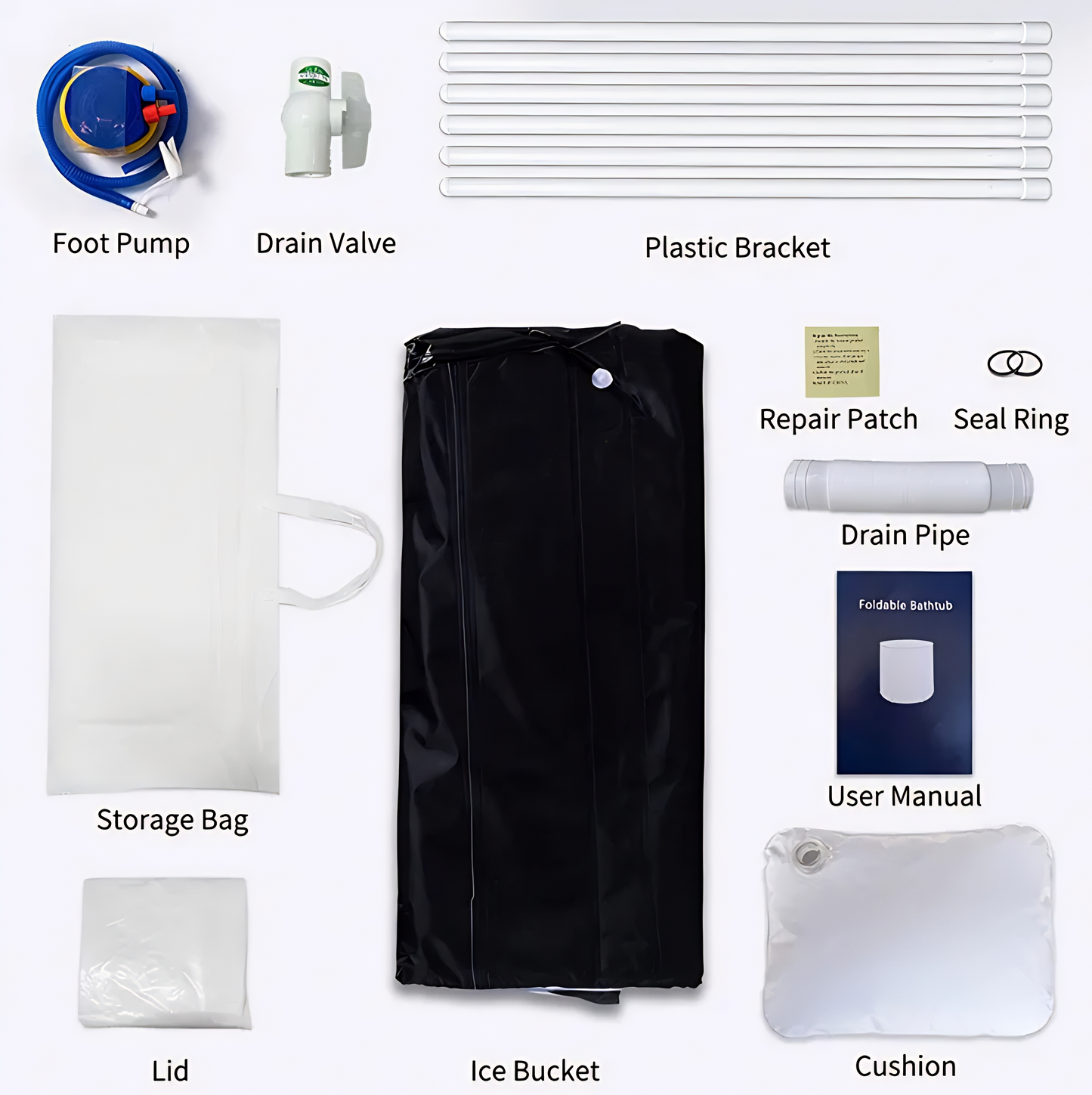Swelling of the feet is a common issue that many pregnant women experience. The combination of hormonal changes and fluid retention during pregnancy can lead to the gradual progression of swelling in expectant mothers. While structural changes in the feet are also a contributing factor, there are natural remedies available to manage and alleviate swollen feet in pregnancy. One such remedy is the use of ice baths, which can provide soothing relief and improve overall well-being.
Key Takeaways:
- Managing swollen feet in pregnancy with ice baths can provide soothing relief.
- Ice baths can help reduce inflammation and improve overall well-being.
- It is important to consult healthcare professionals before incorporating ice baths into a pregnancy wellness routine.
- Complementary practices such as wearing supportive footwear and elevating the legs can enhance the effectiveness of ice bath therapies.
- Ice bath therapy, when done correctly, can be a safe and beneficial practice for relieving swollen feet in pregnancy.
- Always consult a healthcare professional before undergoing any cold water practice.
Understanding Swelling During Pregnancy
Swelling during pregnancy is a common occurrence due to various factors. Hormonal changes and fluid retention play a significant role in causing swelling in different parts of the body, including the feet. The production of relaxin hormone during pregnancy can also lead to structural changes in the feet, such as widening and flattening. The swelling in expectant mothers tends to progress gradually throughout the pregnancy. Understanding the underlying causes and progression of swelling can help in effectively managing the discomfort.
The Role of Hormones and Fluid Retention
Hormonal changes during pregnancy can cause an increase in fluid retention in the body. The body produces more fluids to support the growing fetus, and this excess fluid can accumulate in the tissues, leading to swelling. Additionally, hormonal fluctuations can affect the flow of blood and lymphatic fluid, contributing to the development of swelling, particularly in the lower extremities.
Structural Changes in Feet Through Pregnancy
Pregnancy hormones, such as relaxin, can cause the ligaments in the feet to become more flexible. This increased flexibility, along with weight gain and the additional pressure on the feet, can lead to changes in the foot structure. Many pregnant women experience a widening and flattening of the feet, which can further contribute to swelling and discomfort.
The Gradual Progression of Swelling in Expectant Mothers
Swelling in pregnancy typically starts in the feet and ankles and may gradually progress to affect other areas such as the legs and hands. It is important to note that swelling tends to be more pronounced towards the end of the day and can vary depending on factors such as activity level, weather, and diet. Understanding the gradual progression of swelling can help expectant mothers anticipate and manage the discomfort more effectively.
|
Factors Contributing to Swelling During Pregnancy |
Ways to Manage and Alleviate Swelling |
|
Hormonal changes and fluid retention |
Regular exercise |
|
Structural changes in feet |
Elevating legs |
|
Increased blood and lymphatic flow |
Wearing comfortable and supportive footwear |
|
Activity level and weather |
Limiting sodium intake |
|
Diet and hydration |
Using cold compresses or ice baths |
Managing Swollen Feet in Pregnancy with Ice Baths
Ice baths can be an effective and natural remedy for managing swollen feet in pregnancy. The cold temperature of the water helps to constrict blood vessels and reduce inflammation, providing relief from the discomfort of swollen feet.
To use ice baths for managing pregnancy swelling, expectant mothers can immerse their feet and ankles in cool water for about 20 minutes a few times a week. It is important to ensure that the water temperature is moderate and not excessively cold to avoid any adverse effects. Ice bath therapy can be a safe and beneficial practice when done correctly.
Some key tips for using ice baths for swollen feet during pregnancy:
- Fill a basin or foot tub with cool water.
- Add ice cubes to the water to bring down the temperature.
- Gently immerse your feet and ankles in the water.
- Stay in the ice bath for about 20 minutes.
- Be mindful of the water temperature to avoid extreme cold.
- Pat dry your feet and apply moisturizer afterward.
By incorporating ice baths into their routine, expectant mothers can find relief from swollen feet and enjoy the soothing benefits of cold therapy. However, it is always recommended to consult with a healthcare professional before starting any new therapies during pregnancy to ensure safety and address any specific concerns.
|
Benefits of Ice Baths for Swollen Feet in Pregnancy |
|
Reduces inflammation |
|
Constricts blood vessels |
|
Provides soothing relief |
|
Promotes overall well-being |
Note: It is important to note that ice baths may not be suitable for everyone, especially for those with certain medical conditions or complications during pregnancy. It is crucial to seek guidance from a healthcare professional before incorporating ice baths into your routine to ensure a safe and effective approach.
Conclusion
Benefits Beyond Swelling: Ice Baths for Overall Well-being
Ice baths have proven to offer benefits that extend beyond soothing pregnancy swelling. The cold temperature of the water helps to reduce inflammation, improve circulation, and promote relaxation, contributing to overall well-being. By constricting blood vessels, ice baths effectively reduce swelling, providing relief for expectant mothers. Moreover, the therapeutic effects of ice baths can positively impact the body, helping pregnant women feel more comfortable and rejuvenated.
Practices to Complement Ice Bath Therapies
While ice baths are effective on their own, incorporating additional practices can further enhance their benefits. Wearing supportive footwear helps to provide adequate support to the feet and reduce stress on the joints, alleviating discomfort and preventing further swelling. Elevating the legs helps to improve blood circulation and reduce fluid retention, aiding in the reduction of swelling. Maintaining a healthy diet and exercise routine also plays a crucial role in managing pregnancy swelling and promoting overall wellness.
Consulting Healthcare Professionals for Safe Practices
Prior to incorporating ice baths into a pregnancy wellness routine, it is essential to consult healthcare professionals. They can provide personalized guidance, taking into account any specific concerns or medical conditions. By seeking professional advice, expectant mothers can ensure the safe and effective use of ice baths, as well as receive appropriate recommendations for the frequency and duration of ice bath therapies. Healthcare professionals can also monitor the progress and adjust the treatment plan accordingly, ensuring optimal results and the well-being of both the mother and the baby.
FAQ
Can ice baths help reduce swollen feet in pregnancy?
Yes, ice baths can be an effective natural remedy for managing swollen feet in pregnancy. The cold temperature of the water helps to constrict blood vessels and reduce inflammation, providing relief from the discomfort of swollen feet.
How often should I use ice baths for managing pregnancy swelling?
It is recommended to immerse your feet and ankles in cool water for about 20 minutes a few times a week. However, it is important to ensure that the water temperature is moderate and not excessively cold to avoid any adverse effects.
Are there any other practices that can complement ice bath therapies for swollen feet in pregnancy?
Yes, in addition to ice baths, wearing supportive footwear, elevating the legs, and maintaining a healthy diet and exercise routine can help complement the management of swollen feet during pregnancy.
Is it safe to use ice baths during pregnancy?
Ice bath therapy can be a safe and beneficial practice when done correctly. It is advisable to consult with healthcare professionals before incorporating ice baths into a pregnancy wellness routine to ensure safe practices and address any specific concerns or medical conditions.
Learn more in our detailed article: Are Ice Baths Safe When Pregnant?
What other benefits do ice baths offer beyond soothing pregnancy swelling?
Ice baths can contribute to overall well-being by reducing inflammation, improving circulation, and promoting relaxation. They can also be beneficial for managing muscle soreness and promoting recovery.
Learn more in our detailed article: How To Do Ice Baths When Pregnant.

